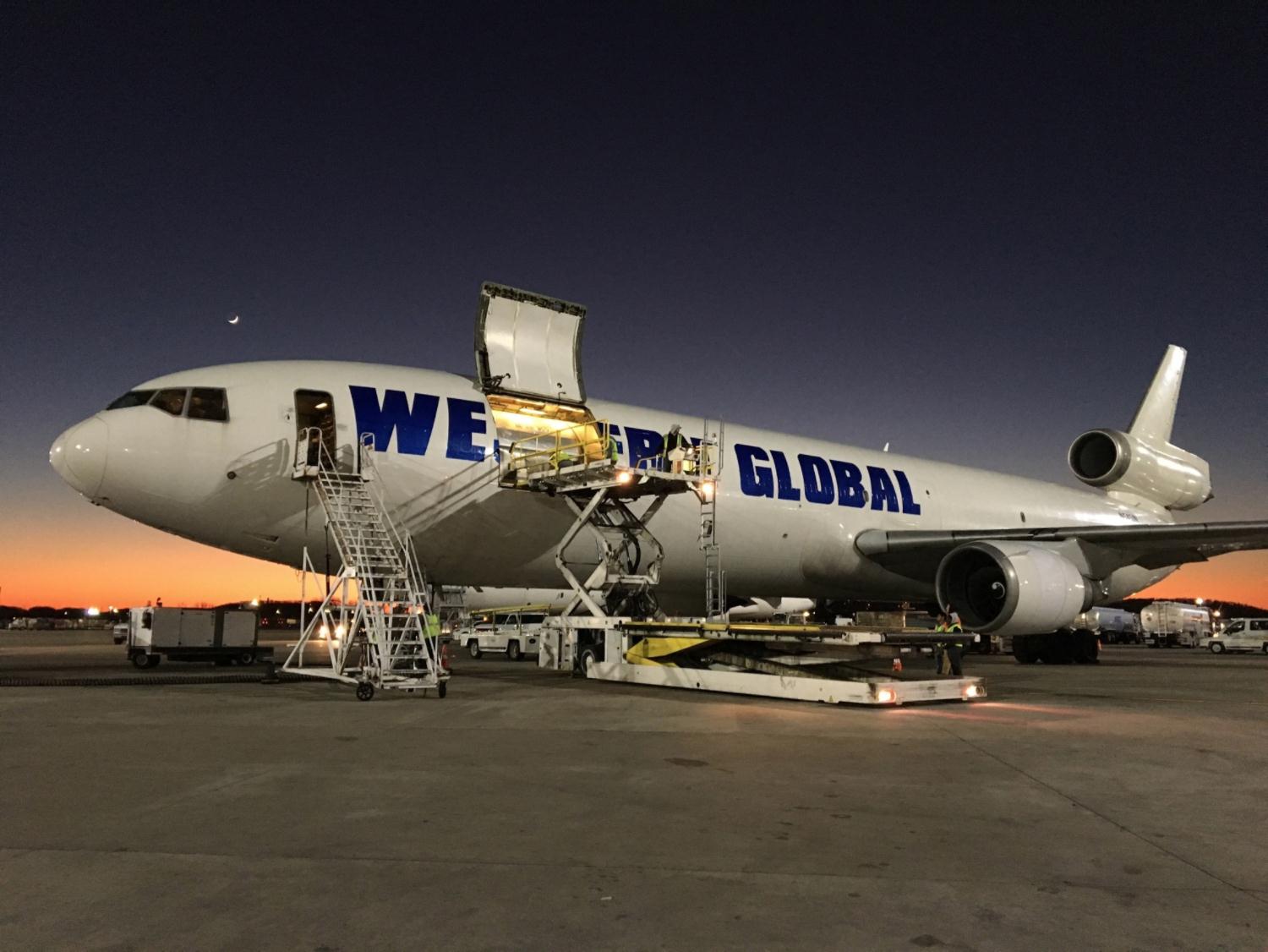With a slew of traffic rights and a new contract for trans-Pacific flights under its belt, Western Global Airlines (WGA) is continuing its drive into the international cargo arena.
The Florida-based all-cargo airline is strengthening its presence in the trans-Pacific sector through a partnership agreement signed with Flexport to give the forwarder dedicated main deck lift between Asia and the US. Under the three-year contract, WGA will mount twice-weekly flights between Hong Kong and Los Angeles starting on April 2, fielding a Boeing 747-400 freighter.
As air freight capacity remains tight, Flexport management came to the conclusion that a dedicated freighter service was the best strategy to secure lift for its traffic. “This new partnership allows Flexport to offer predictable, affordable and a custom-tailored service to our customers with guaranteed capacity through seamless, dedicated scheduled service in the important Hong Kong to US markets,” said Neel Jones Shah, the forwarder’s senior vice-president and global head of air freight.
WGA, which was founded in 2013 by former Southern Air chief Jim Neff, started scheduled flights between China and the US last summer, after the US Department of Transportation (USDOT) had granted it the requisite traffic rights. In the main the carrier provides freighter services on an ACMI basis.
Like most of its rivals, WGA benefited from the strong rise in demand in 2017.
“We had a fantastic year,” said Neff, who is WGA’s CEO. “Our revenues were up 35%, 40% and we really expanded our base.”
He attributed the growth to a “perfect storm” that has been driven by four main factors. The spread of international e-commerce has reversed the modal shift back to air freight, global trade has shown strong momentum that will likely continue, demand for freighter capacity is up and the supply of large widebody freighters remains tight.

“I do not see a rash of new airplanes coming in,” he said, noting that airlines were loath to order new freighters during the downturn.
The start of scheduled trans-Pacific flights last summer has not really changed WGA’s business, which is focused on the ACMI segment. “The scheduled side helps us get into some markets that we needed to get into,” commented Neff. “We are not really in the scheduled business, we do not sell by the pound. We are not set up to do that.”
The carrier has performed charters for many charter customers, but Neff reckons that it will have less capacity available for that side in the foreseeable future. Some airlines are inclined to hold back capacity to take advantage of ad hoc demand and prices during peak times, but WGA decided against such a strategy.
“All our MD-11s are tied up in long-term contracts,” said Neff. “We looked at the advantages of the ad hoc market, but we came to the conclusion that we have enough blue-chip customers and we don’t want to have not enough capacity for them. If I had more planes, it would make sense to do more ad hoc business.”
WGA currently operates 11 McDonnell Douglas MD-11 freighters and two 747-400Fs. Sensing an opportunity when other carriers were taking MD-11s out of service, Neff started acquiring the type as early as 2011.
While the MD-11’s payload is not far below that of a 777, its acquisition cost is closer to that of the 767. Moreover, it can be used both in domestic and international markets, including trans-Pacific sectors, Neff said.
When he was at the helm of Southern Air, he transitioned the carrier from 747-200s to 777s and shifted its focus on the express carrier sector. Now the MD-11 forms the backbone of WGA’s operations, supplemented by the 747-400s. Neff would like to get more of the latter but noted that there is a lot of demand for the type at the moment.
WGA is set to receive two more MD-11s this year and plans to get another two in 2019. That should suffice for its needs in the coming years, according to Neff.
At the same time, the company is expanding its range. In mid-February it obtained blanket approval from the USDOT to serve points in countries that have open skies agreements with the US. It also received the green light to use such countries as transit points. In addition, the USDOT granted WGA exemption authority to serve Singapore, Brunei, New Zealand, the Cook Islands, Samoa, Tonga and Chile.
At this point the carrier reaches 300 airports in 116 countries on six continents.
Neff noted that alternative gateways have gained ground lately owing to congestion at major gateways, which has been exacerbated by lack of investment in cargo infrastructure during the downturn. He is happy to fly to up and coming airports, but the decision is not with WGA, he pointed out.
“We serve our customers. If they want to go to Chicago, we’ll go to Chicago,” he said.
By Ian Putzger
Air Freight Correspondent | Toronto